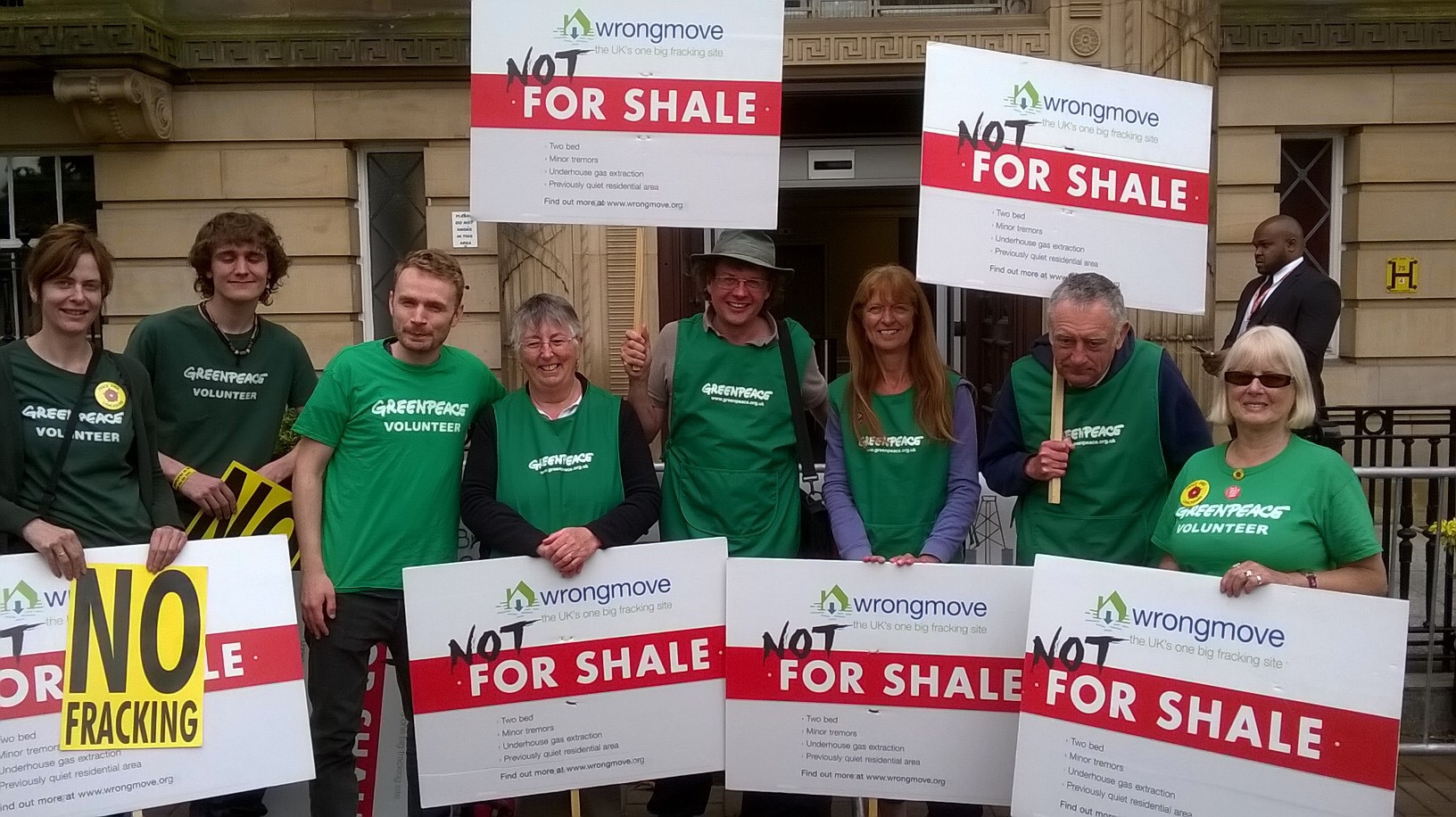Today’s decision by Lancashire County Council to reject plans for shale gas extraction puts increased pressure on Salford and Trafford Councils to reject any future plans for fracking at Barton Moss or Davyhulme according to Greenpeace.
Last week Lancashire County Council rejected plans by Cuadrilla Resources for shale gas extraction at Roseacre. A decision on another application, at Preston New Road, Little Plumpton, was delayed until today due to concerns about a possible legal challenge. However Councillors today rejected both the extraction plan for Little Plumpton and seismic testing at Roseacre, which they had agreed last week.
Fracking, they say, is not supported in local communities across the UK. Significant and sustained community resistance to fracking which has seen of 80% of applications in the last six months refused.
“Fracking risks industrialising our countryside and local towns and villages, could put our water supplies at risk and will pollute the air we breathe – and yet even the Chairman of Cuadrilla admits that fracking won’t lower our bills.”
Barton Moss in Salford and Davyhulme in Trafford are both sites where energy company IGas has carried out test drills, but there have been no applications for the commercial extraction of shale gas in Greater Manchester yet.
Local Greenpeace campaigner Martin Porter said “We are very happy that the County Council have listened to the people of Lancashire and rejected fracking. This decision has saved jobs in farming and tourism and could open the doors to even more jobs in renewable power and energy conservation. Manchester doesn’t want this any more than Lancashire does, so we expect our politicians to be as brave in standing up to IGas and Lancashire’s were in facing down Cuadrilla.”
Lancashire County Council rejected the bid on the grounds of “unacceptable noise impact” and the “adverse urbanising effect on the landscape”.
Cuadrilla said it was “surprised and disappointed” and would consider its “options” regarding an appeal.
A spokesman added: “We remain committed to the responsible exploration of the huge quantity of natural gas locked up in the shale rock deep underneath Lancashire.”
Fracking, or hydraulic fracturing, was suspended in the UK in 2011 following earth tremors in Blackpool where Cuadrilla previously drilled.
Dr John Broderick, a Knowledge Transfer Fellow at Tyndall Manchester, a core partner of the UK’s leading interdisciplinary climate change research centre. He specialises in emissions accounting, carbon trading and the climate impact of energy systems.
He said: “Even before the decision today there is little expectation from the industry that they will be producing large volumes of gas within the decade. There are a number of reasons to expect changes in the UK’s energy landscape that are likely to constrain the long-term prospects of the industry. Fundamentally, the issue facing this fledgling industry is one of a declining demand for gas.
“If we are serious about avoiding dangerous climate change and the social and ecological upheavals it entails then we must be equally serious about leaving fossil fuels underground.”







